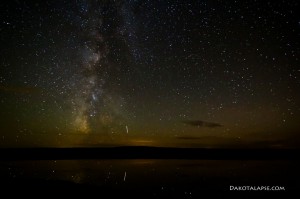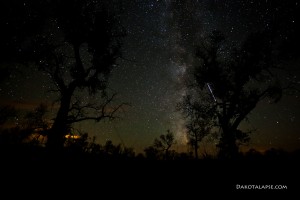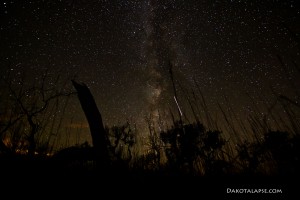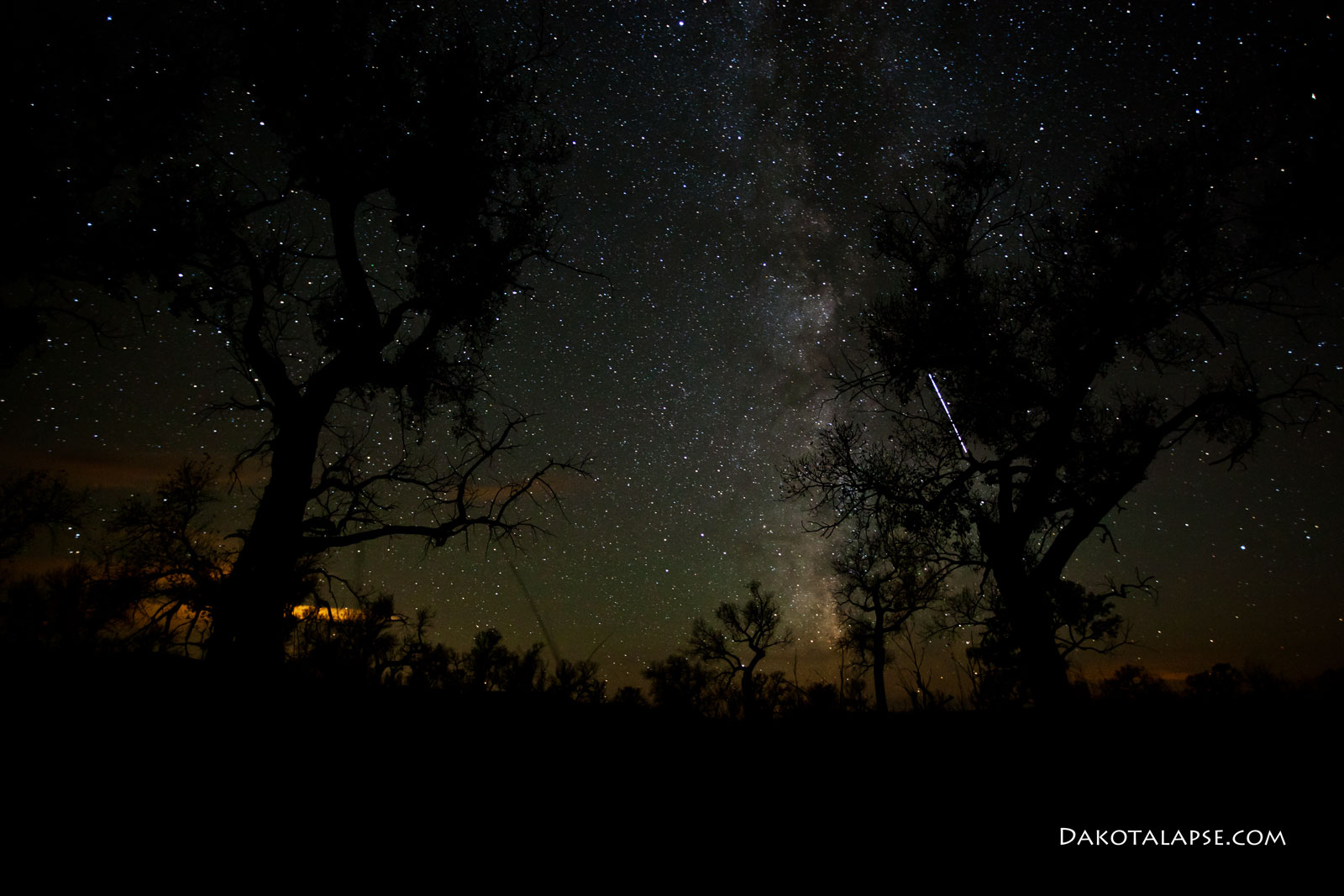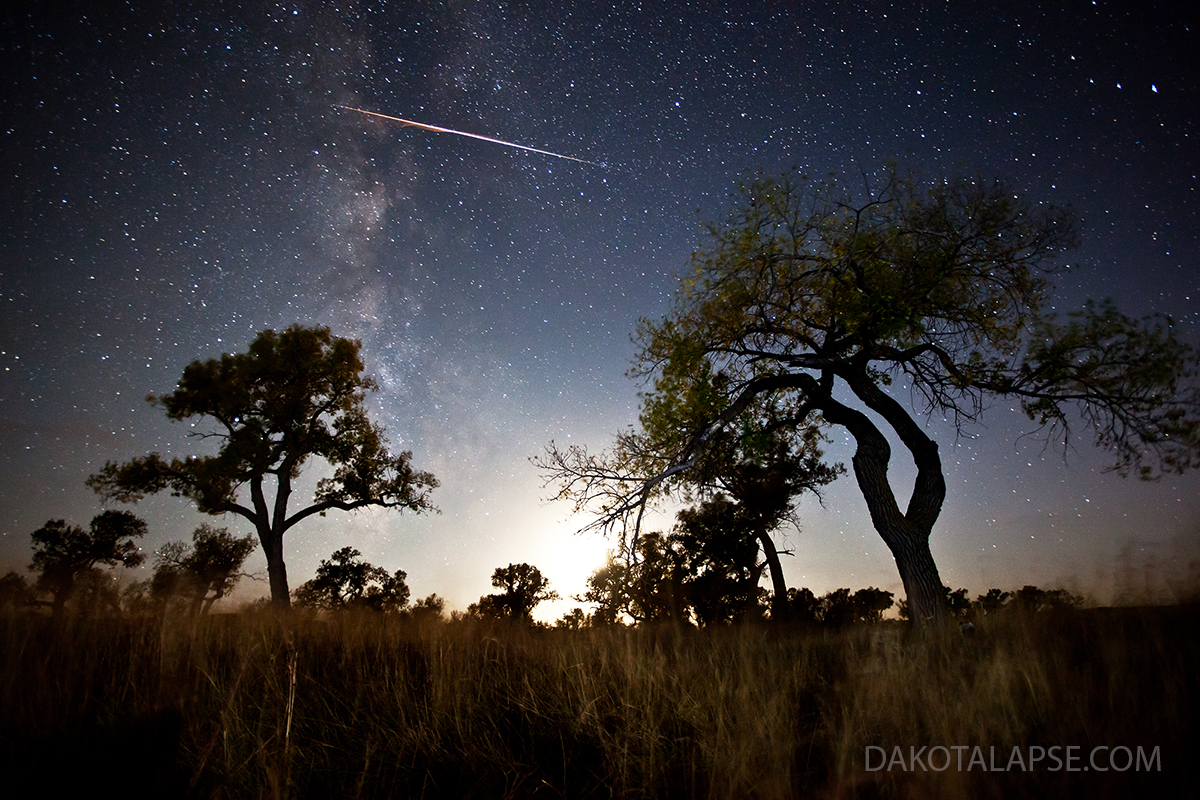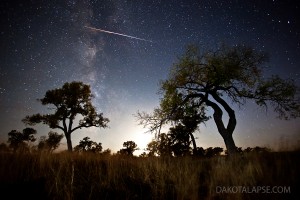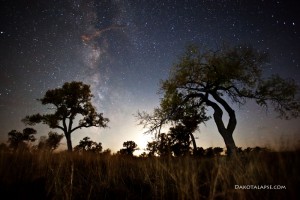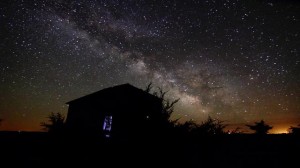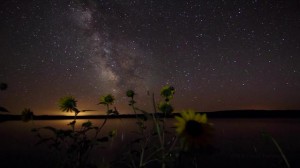
[add_to_cart item=”1007″ quantity=”user:1″ ]
[add_to_cart item=”1008″ quantity=”user:1″ ]
Tempest Milky Way won Best Overall and Audience Choice at the 2011 Chronos Film Festival
Download an extended cut of this video here, with almost 1 minute of extra footage. 5$ See stills below.
[nggallery id=8]
Order prints and gallery wraps on Zenfolio
Stills from footage on the extended cut.
One of the challenges in making this video, was trying to get good storm and star shots. The opportunity doesn’t come along very often, the storm has to be moving the right speed and the lightning can overexpose the long exposures. I had several opportunities this summer to get storm and star shots. With good . In one instance, within a minute of picking up the camera and dolly, 70mph winds hit. One storm was perfect, it came straight towards the setup, then died right before it reached it.
At the 1:57 mark a Whitetail buck came in to check out the setup. It was caught on 20 frames, and was there for about 10 minutes. It was only 50 yards from the camera, dolly and light.
At the 3:24 mark, a meteor reflects on the water of the small lake, see still below in Photos. There are also quite a few other meteors in the timelapse.
Canon 5D Mark II for a few shots, Canon 60D and T2i
Canon 16-35, Tokina 11-16
Exposure on most shots was 20-30 seconds, ISO 1600 or 3200 F2.8.
Simon Wilkinson at thebluemask.com created the music and sound for it.
Download the MP3 on his site http://www.thebluemask.com/shop/tempest/?tid=tempestmilkyway
Available in 4K Ultra HD for licensing.
Contact for licensing or anything else
Randy Halverson
dakotalapse@gmail.com
Follow:
Google + https://plus.google.com/115274420552571826637/posts
Facebook http://www.facebook.com/dakotalapse
Twitter http://www.twitter.com/dakotalapse
Still frames from Tempest Milky Way
[nggallery id=7]
